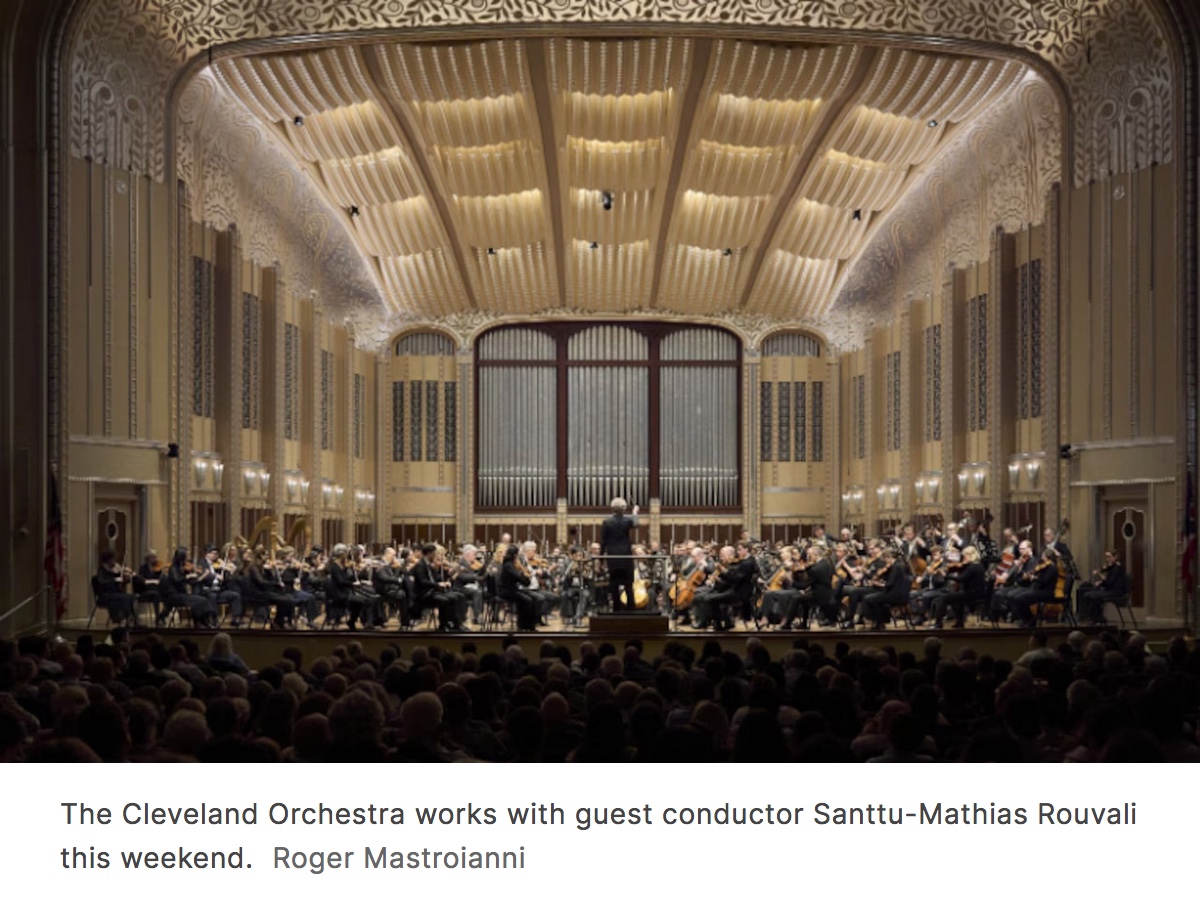by Stephanie Manning

CLEVELAND, Ohio — Change of plans recently led to unexpected opportunities at The Cleveland Orchestra. And so, this week, guest conductor Santtu-Mathias Rouvali seized the moment. With the Mahler “Das Lied von der Erde” program moved to next season, a rare blank slate appeared. Rouvali stepped in on short notice to make his Cleveland debut presenting an impassioned program.
The three pieces performed on Thursday, Nov. 21 — which will be heard again on Nov. 22 and 23 — share a distinctive expressivity, and each represented an introduction of their own.
Carl Nielsen’s Overture to “Maskarade“ set the scene for the Danish composer’s opera, a well-known work in his home county but rarely played elsewhere. Its five minutes include a whirling ballroom waltz, which Rouvali accentuated by coaxing the brass to cut through the texture. The conductor quickly revealed his taste for flourishes, his motions imbued with a fluttery, cursive affect.
In Jean Sibelius’ “Symphony No. 1,” Rouvali’s hand gestures continued to tell the story, with some blink-and-you-miss-it twirls of baton. The result was more than just visual. The conductor’s personal stamp was all over the performance, with its vigorous crescendos, hushed pauses, and accents resembling miniature zaps of electricity.
Afendi Yusuf’s first movement clarinet solos were suitably mysterious, while the broader woodwind touches in the third movement Scherzo were as light as skipping stones over water. In the finale, the string section bathed in some over-the-top Romantic melodies, though Rouvali’s slower tempos did eventually make these moments feel a bit bogged down.
That was also true of the second movement, though its richly woven tapestry was hard to resist. In the ending section, the strings conjured a peaceful stillness, bringing to mind the snowflakes currently blanketing the world outside.
The second movement also felt connected to that of the other piece on the program: Pyotr Ilyich Tchaikovsky’s “Violin Concerto.” Tchaikovsky’s influence is evident in early Sibelius, and both works wear their hearts on their sleeves.
Soloist Stefan Jackiw — not an unfamiliar face in Cleveland — shared many of Rouvali’s sensibilities. In one moment, the violinist’s blazing-fast technical passages leaned forward on the beat, while in the next, he luxuriated in melodic richness.
His focused tone projected into every corner of the hall, making his combined moments with the full orchestra some of the most exciting of the evening.
In a touching moment, Jackiw then roped in guest concertmaster Joel Link for an encore, the first movement of Prokofiev’s “Sonata for Two Violins.” He told the audience how he and Link first played this piece at a violin camp as teenagers — and the happy little reunion seemed to make the stage fall away, leaving only two friends making music.
Published on ClevelandClassical.com November 27, 2024
Click here for a printable copy of this article



